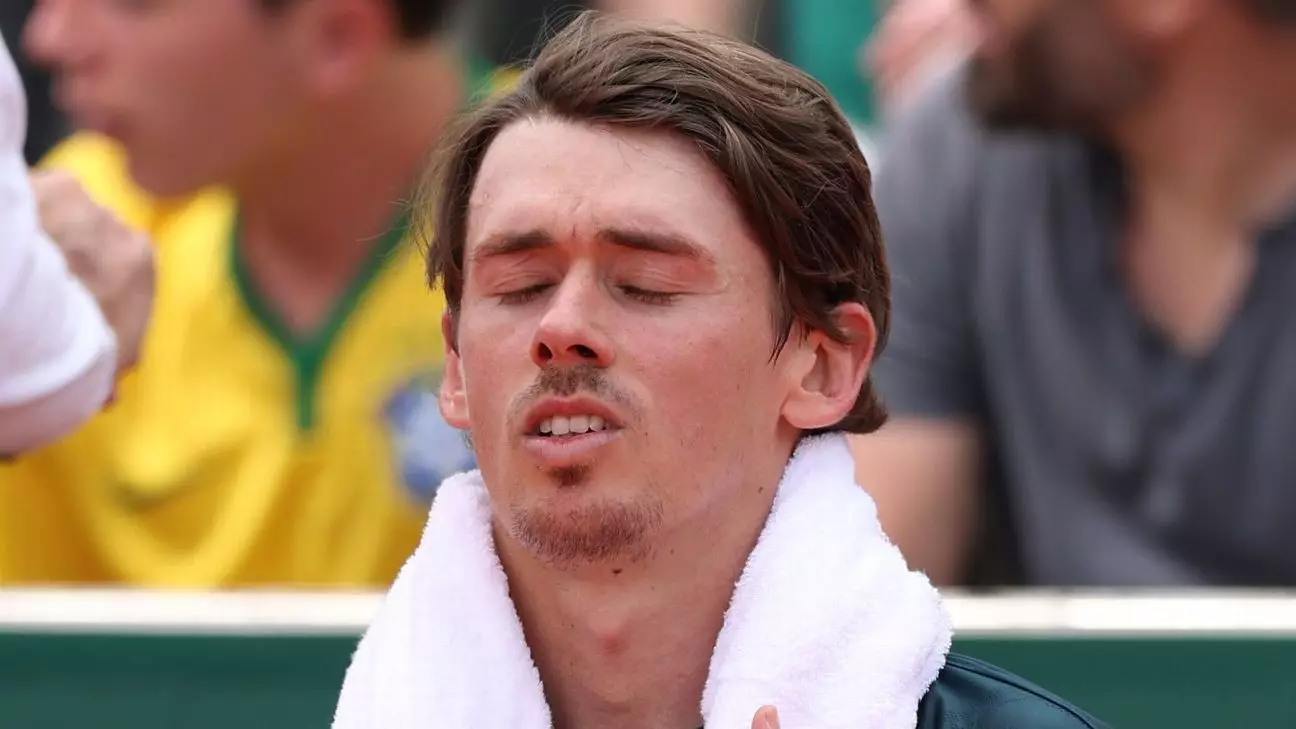The recent disheartening exits of prominent tennis figures like Alex De Minaur and Casper Ruud at the French Open have resurrected glaring concerns about the relentless demands of the tennis calendar. The crux of the issue lies not solely in the physical exertion required to endure a lengthy season but also in the mental toll it takes on players. De Minaur’s elimination from the tournament, coupled with his plea for a shorter schedule, underscores a troubling trend in modern tennis: the unrelenting pressure that players face, pushing them towards burnout and, ultimately, shortening their careers.
Starting the season with the United Cup just 33 days after the conclusion of the Davis Cup Final exemplifies the frantic pace of professional tennis. This sudden shift from one competitive environment to another leaves little room for recovery or self-care, a reality that players like De Minaur argue can be detrimental to their well-being. The frequency with which athletes compete can create a vicious cycle of exhaustion, not only harming their physical health but also impairing their ability to enjoy the sport that they love.
The Rat Race of Rankings
Casper Ruud’s insights regarding the ATP ranking system further illuminate the madness inherent in tennis today. Describing the atmosphere akin to a “rat race,” Ruud articulates the invisible hand that compels players to participate in mandatory events, even when they might be physically hindered. The pressure to accumulate ranking points becomes a double-edged sword; while climbing the ranks leads to greater prestige and potential earnings, neglecting to compete due to injury could mean a significant drop in the rankings, disinterest from sponsors, or diminished career longevity.
The financial implications are equally as burdensome. Ruud highlights the ATP’s punitive measure where a player’s year-end bonus is slashed by 25% if they miss a mandatory event. This form of coercion reduces the sport to a transactional relationship between players and governing bodies, where athleticism is eclipsed by a rigid adherence to the rankings. For many athletes, the love of the game is overshadowed by the necessity of participation for the sake of their ranking and earnings, leaving them trapped in a grueling cycle.
Consequences of a Compressed Calendar
The mental and physical repercussions of an overloaded season are profound. Athletes, aiming to maintain their ranking and sponsorships, often stretch their bodies beyond reasonable limits. This not only threatens their performance and future prospects but also raises questions about the sport’s integrity: where is the room for recuperation, skill refinement, or even personal growth outside the court? The lack of a sensible schedule can cultivate a culture of unhealthy competition, pushing athletes to prioritize visibility over well-being.
Moreover, the need for reform transcends individual players; it speaks to the integrity of the sport itself. The ATP and other governing bodies must confront the pressing reality that player health and longevity should take precedence over rigid schedules and financial metrics. Continued inaction could result in a talent drain, as young, promising players opt for different career paths where the demands are more balanced and sustainable.
Calls for Change: A Collective Responsibility
Calls for a reformed tennis calendar are not just the musings of a frustrated few; they reflect a collective cry from the tennis community for sustainability. It’s essential for governing bodies to engage players in meaningful dialogue about how best to structure the calendar to benefit both the sport and its athletes. The blueprint for necessary reforms can stem from a model that emphasizes player health and well-being while still fostering competitive spirit.
Innovative scheduling, optional events, and clearer guidelines on mandatory tournaments could emerge as potential strategies for curtailing burnout and ensuring players can pursue their passions without the harsh penalties posed by current policies. Ultimately, adopting a more player-centric approach underlines the evolving nature of professional sports: it’s about fostering talent and passion while safeguarding the health of athletes.
Redefining the calendar is not just an administrative task but a profound responsibility that will shape the future of tennis—transforming it into a sport that truly values its players. With the stakes higher than ever, the time is ripe for action.

